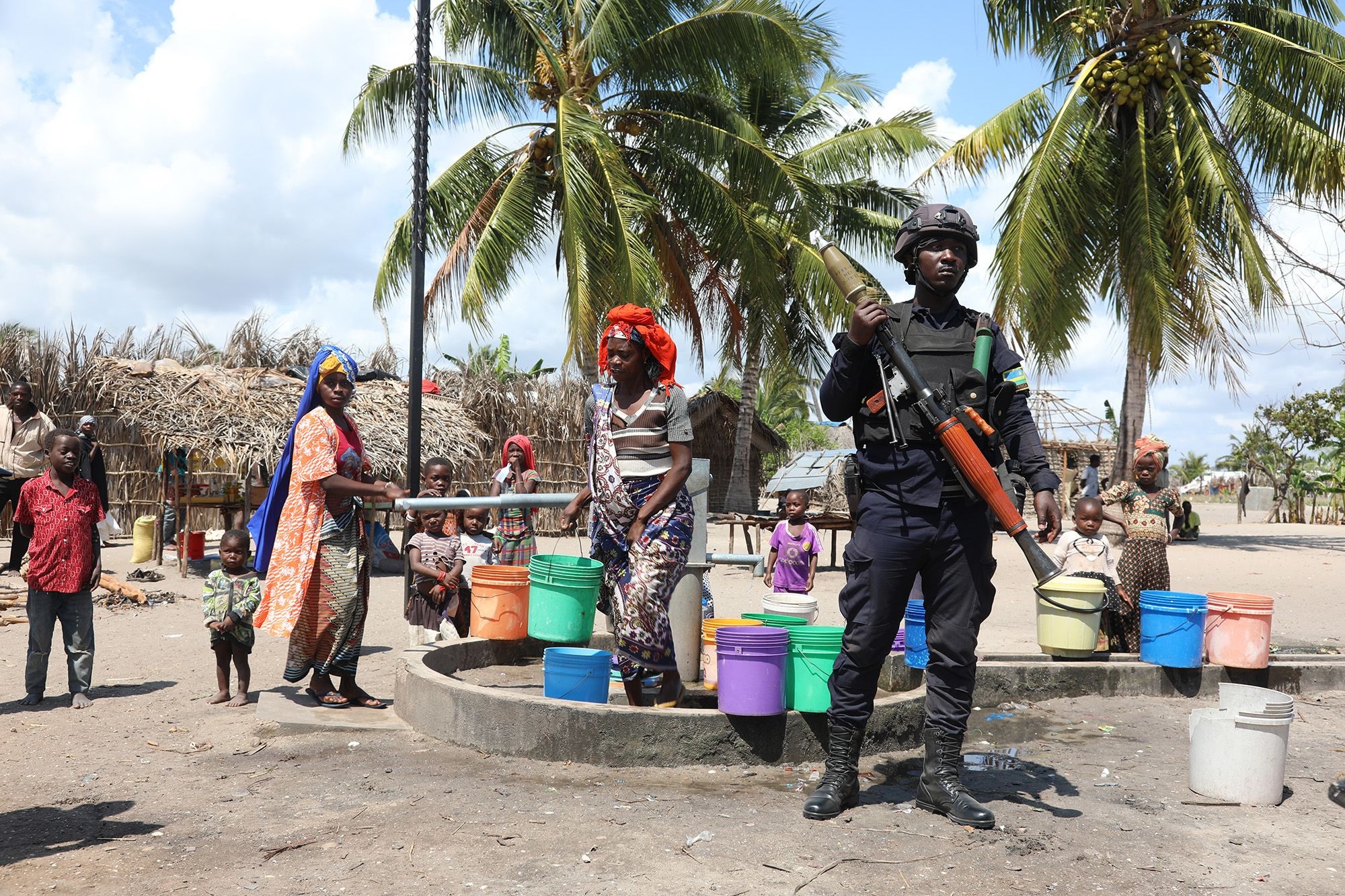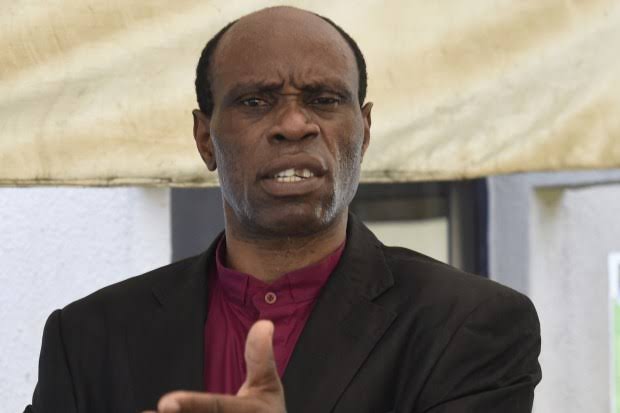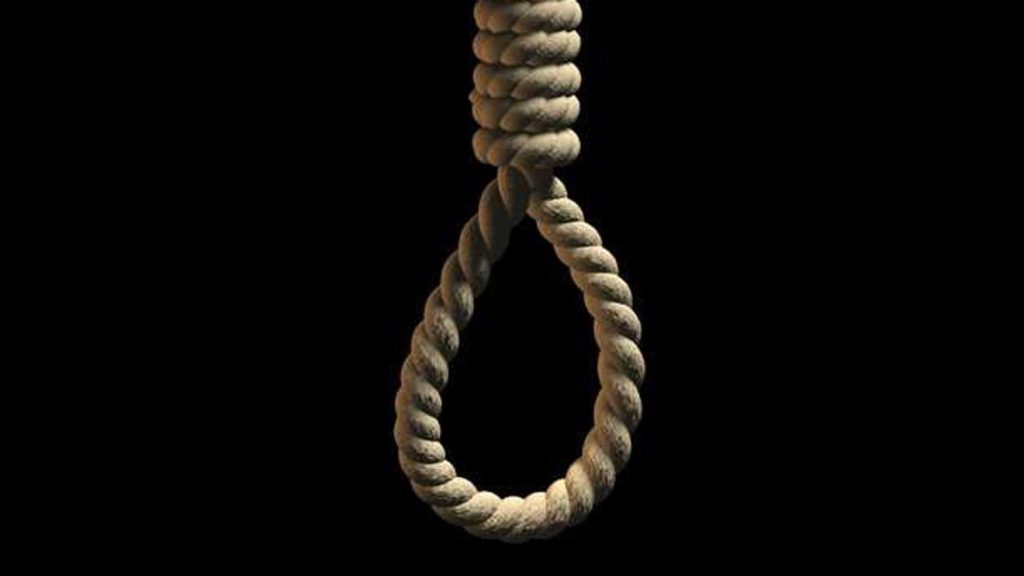News
ISIS-linked militant attacks on Mozambique reserve, kills 10

A wave of violence linked to Islamic State-affiliated extremists has rportedly rocked one of Africa’s largest protected wildlife areas, the Niassa Reserve in Mozambique, The Guardian on Sunday, May 18, 2025, reports.
These recent attacks have led to at least 10 deaths and are threatening decades of progress in wildlife conservation.
The deteriorating security situation has brought all conservation efforts in the reserve to a halt and displaced thousands of local residents.
On April 29, armed militants targeted facilities within Niassa Reserve, killing two anti-poaching scouts.
Another scout was critically injured, and two remain missing.
This violent raid, which was later claimed by the Islamic State-Mozambique group, followed a similarly brutal attack just 10 days earlier on a nearby safari camp.
That assault left two individuals beheaded and six soldiers dead.
As a result of the violence, a village housing around 2,000 people has been abandoned.
Also, conservation work throughout Niassa has been suspended.
Local community and wildlife organizations have warned that more than 20 years of painstaking conservation achievements are now at risk.
The attacks have generated widespread fear among local communities, with the brutality, including beheadings, instilling a deep sense of insecurity and panic.
Colleen Begg, managing director of the Niassa Carnivore Project, reported that her organization’s headquarters were among those hit in the April 29 attack.
She emphasized that the fear caused by such gruesome acts is intentional and has had devastating effects on the area’s conservation and tourism sectors.
Begg warned that the cessation of tourism, which is vital for both economic and conservation sustainability, could have long-term consequences, possibly lasting years.
Niassa Reserve is notable for its vast, unspoiled wilderness.
Spanning 4.2 million hectares (roughly 10 million acres), the reserve is about the size of Switzerland and one of Africa’s most significant biodiversity sanctuaries.
It is home to approximately 1,000 lions, 350 critically endangered African wild dogs, and growing populations of elephants, buffalo, and other keystone species.
The region’s ecological importance, coupled with its lack of fencing and natural, open habitat, makes it uniquely valuable not just to Mozambique but to global conservation efforts.
Discussions were underway to nominate Niassa as a UNESCO World Heritage Site.
This plan has now been reportedly jeopardized by the rising violence.
The insurgents behind these attacks are part of Islamic State-Mozambique, a group locally referred to as al-Shabaab, though it is not connected to the Somali organization of the same name.
Since emerging in 2017, this group has displaced more than one million people in northern Mozambique.
Government forces reportedly responded strongly after the group attacked Palma in 2021.
This led to the suspension of a major gas project by TotalEnergies.
On the other hand, the insurgents continue to operate in the country’s northernmost regions, including Niassa.
The current wave of violence has led to the abandonment of nine conservation and safari camps, one of which has been completely destroyed.
Begg stressed the urgent need for international and governmental support to restore peace and protect both human and animal life in the reserve.
She explained that without security, local residents cannot safely engage in daily activities such as farming or gathering natural resources like honey.
For conservationists, the situation is unworkable, and the fear and instability have deterred tourism completely.
“The top priority is resolving the insurgency,” Begg said.
“If there is no peace, people cannot harvest their crops, conservationists cannot work, and tourists will not visit.
“This situation is absolutely devastating,” she added.
In response, the Mozambican army has launched operations to pursue and combat the extremist group, but the crisis remains ongoing.
Conservation leaders fear that without swift and effective action, not only will human lives continue to be lost, but the ecological treasures of Niassa, built up over two decades, could be irreparably damaged.
News
‘Gate of Hell’ Will Open on Gaza’– Israeli Defence Issues Finally Warning to Hamas

Israeli Defence Minister Israel Katz has issued a fierce warning to Hamas, declaring that Gaza City will face complete destruction if the militant group refuses to accept Israel’s conditions for ending the war.
Katz, in a statement shared on social media on Friday, August 22, 2025, used sharp words to describe Israel’s next steps.
He said the “gates of hell” would open on Hamas if it failed to disarm and release all hostages.
“Soon, the gates of hell will open upon the heads of Hamas’s murderers and rapists in Gaza until they agree to Israel’s conditions,” Katz wrote.
He added that if Hamas refused, Gaza City would suffer the same fate as Rafah and Beit Hanoun, two cities previously flattened by Israeli offensives.
His comments mark one of Israel’s strongest warnings since the escalation of the conflict.
The minister’s remarks came only hours after Prime Minister Benjamin Netanyahu announced that negotiations had been ordered to free the hostages held in Gaza.
Netanyahu explained in a video address that Israel’s military operation in Gaza City would not stop during talks. “Defeating Hamas and releasing our hostages go hand in hand,” he said.
The prime minister also confirmed the mobilisation of 60,000 reservists to join the offensive.
Meanwhile, mediators have been waiting for Israel’s response to a ceasefire plan that Hamas accepted earlier in the week.
The proposal suggests a phased release of hostages, but Israel insists that only a deal ensuring the release of all captives at once will be accepted.
Israel’s hardened stance has sparked growing concern worldwide.
International leaders have cautioned that an expanded assault on Gaza City could worsen the humanitarian disaster already unfolding in the region.
Gaza’s health ministry says more than 62,000 Palestinians, most of them civilians, have been killed since Israel’s military campaign began.
The United Nations considers these figures credible.
The war was triggered by Hamas’s October 2023 attack, which left 1,219 people dead in Israel, mostly civilians.
Since then, the conflict has intensified, with both sides showing little sign of compromise.
With Katz’s threat to turn Gaza City into rubble if demands are not met, the conflict appears to be entering an even deadlier stage.
The international community continues to press for a ceasefire, but Israel’s leadership insists that victory over Hamas and the release of all hostages remain its top priorities.
Health
NAFDAC Raises Alarm as Fake Cowbell Milk Floods Nigerian Markets

The National Agency for Food and Drug Administration and Control (NAFDAC) has raised alarm over the circulation of fake Cowbell “Our Milk” 12g sachets in Nigeria.
In a statement issued on Friday, August 22, 2025, the agency explained that the counterfeit milk is packaged to look like the discontinued Cowbell “Our Milk,” but it is unauthorised and unsafe for consumption.


NAFDAC clarified that Promasidor Nigeria Ltd, the authentic manufacturer, stopped producing Cowbell “Our Milk” in September 2023.
The product was replaced with Cowbell “Our Creamy Goodness.” Despite this, fake versions of the old product have found their way into Nigerian markets.

Picture of Fake cowbell milk.
The counterfeit sachets bear the brand name, NAFDAC registration number, and familiar packaging design, making them difficult for unsuspecting buyers to identify as fake.
Health Dangers of Fake Cowbell Milk
NAFDAC warned that the consumption of these counterfeit products poses serious health risks.
Fake milk could contain toxic chemicals, harmful additives, or diluted ingredients that endanger human health.
Infants, children, pregnant women, and the elderly are the most vulnerable. Possible dangers include:
- Foodborne illnesses
- Allergic reactions
- Organ damage
- Long-term health complications
- In extreme cases, death
Counterfeit Product Details
- Product Name: Cowbell “Our Milk” 12g sachet
- Purported Manufacturer: Promasidor Nigeria Ltd
- Production Date: 04/2025
- Expiry Date: 12/2028

Picture of original cowbell milk.
NAFDAC Issues Strong Warning
The agency urged Nigerians to remain vigilant and avoid purchasing the counterfeit milk.
Healthcare professionals, distributors, and consumers have been advised to report suspicious sales of substandard or fake products immediately.
Reports can be made through:
The nearest NAFDAC office
Toll-free line: 0800-162-3322
Email: sf.alert@nafdac.gov.ng
NAFDAC also called on traders and retailers to stop selling the fake sachets.
The agency assured the public that strict enforcement measures are being taken to remove the counterfeit products from circulation.
This is not the first time Nigerians have faced risks from fake food and beverages.
Experts warn that counterfeit consumables are becoming more sophisticated, often making them difficult to spot.
Consumers are advised to always check product details, expiry dates, and packaging changes announced by manufacturers.
By highlighting the dangers and raising awareness, NAFDAC says it hopes to protect Nigerians from avoidable health crises linked to fake milk products
Africa
‘Misplaced Priority’: Peter Obi Blasts FG’s ₦142bn Bus Terminal Project

Former Labour Party presidential candidate Peter Obi has slammed the Federal Government’s approval of ₦142 billion for the construction of bus terminals across Nigeria, describing it as a reckless misplacement of priorities.
Obi issued a statement on Friday, August 22, via his Official X formerly Twitter platform, warning that the project reflects poor leadership and lack of focus in managing Nigeria’s limited resources. He titled his statement, “₦142 Billion for Bus Terminals.”
According to him, the true test of leadership is how scarce resources are prioritized.
He stressed that investing such a huge amount in bus terminals while critical sectors like healthcare suffer shows a government that is out of touch with citizens’ realities.
Obi said: “The difference between success and failure in any nation is how leaders prioritise resources.
The decision to spend ₦142 billion on six bus terminals exposes a lack of competence and vision. It is a clear sign of poor leadership.”
The Federal Executive Council had recently approved the funds for the construction of one modern bus terminal in each of the six geopolitical zones.
The government described it as part of efforts to modernise transport infrastructure and improve mobility nationwide.
But Obi strongly disagreed. He compared the allocation to healthcare funding, pointing out that the combined budget for all teaching hospitals and federal psychiatric centres in Nigeria is less than ₦100 billion in the 2024 budget.
“This is disturbing,” Obi continued, “because health remains one of the most critical sectors of development. Yet it is underfunded and deteriorating rapidly.
The World Health Organization has reported that over 20 million Nigerians live with mental health conditions.
This is a tragic irony. How can the government ignore this crisis and focus on bus terminals?”
He argued that the health sector, alongside education and poverty reduction programs, deserves priority attention.
Obi insisted that until government spending reflects the real needs of Nigerians, the country will remain trapped in poor governance.
Many Nigerians have also taken to social media to express anger, echoing Obi’s concerns. Critics argue that the decision proves the Federal Government is disconnected from the economic struggles of ordinary citizens.
For Obi, the ₦142 billion project is not just a case of wrong timing.
He sees it as a clear example of governance failure and misplaced priorities.
News
Why I’ll never encourage my son to visit Nigeria — Taribo West

Former Super Eagles defender, Taribo West, has strongly criticized the treatment of Nigerian football legends, vowing never to encourage his son to set foot in Nigeria due to the neglect shown to the country’s sports heroes after their deaths.
Speaking passionately during the burial ceremony of late goalkeeper Peter Rufai, in a video shared by News Central on Friday, the former Inter Milan star expressed his deep disappointment with the Nigeria Football Federation (NFF) and the Lagos State Government for allegedly abandoning Rufai’s family during their time of need.
“It’s disheartening that you have Lagos State, you have the Nigerian Football Association, and yet they drop the entire burden on the family,”West lamented.
He revealed how deeply Rufai’s passing affected him, saying: “My mother passed on, I never shed tears. My father passed on in my hands, I never shed tears. But when Rufai passed on, I had goose pimples all over my body. Tears were rolling down my cheeks. What kind of nation is this?”
West didn’t hold back in recalling similar neglect faced by other late football icons like Stephen Keshi, Rashidi Yekini, and Thompson Oliha.
He condemned the consistent abandonment of ex-players who had sacrificed so much for the country, stating that such treatment discourages him from allowing his children to represent Nigeria in football.
“With this kind of example, I will never advise even my son to put his feet for this country. Send me out! Do we have a Football Federation or a Football Association in this Lagos State? That this hero, this soldier, this football evangelist, has to be treated this way in his family”, he said.
The former defender also highlighted the financial struggles faced by Rufai’s family, revealing that they had to solicit funds from friends and well-wishers just to cover burial costs.
“Could you imagine that the family would be crying just to solicit within our groups to ask for money? That is madness”, he exclaimed, visibly frustrated.
Peter Rufai, fondly known as “Dodo Mayana,”was Nigeria’s first-choice goalkeeper during the nation’s victorious 1994 Africa Cup of Nations campaign and its debut at the FIFA World Cup the same year.
He passed away in July 2025, leaving behind a legacy that has reignited conversations about the lack of support and respect for retired athletes in Nigeria.
News
Hardship: Man commits suicide in Imo

A heartbreaking tragedy unfolded on Friday morning in Amakpu Okuku community, Owerri West Local Government Area of Imo State, as residents discovered the lifeless body of a man in his 50s, identified simply as Odomma, who reportedly died by suicide.
The father of four, who earned a living selling water in jerry cans and buckets, had been battling severe financial hardship, leaving him unable to adequately provide for his family.
Odomma’s body was found hanging in an unfinished building near his home, a grim discovery that shook the community as locals went about their daily routines.
According to residents, Odomma had expressed frustration about his struggles months earlier, threatening to end his life due to the alleged neglect by his wife and children, who reportedly stopped providing him with food because he couldn’t support the household.
A community member, Ikenna, shared insights into Odomma’s despair, saying:
“He said if the situation continued, he would take his life to end the misery. We advised him to report the matter to the village head for settlement. Sadly, he chose this path. Just see how this man ended his life because of money. He could have sold his GP tank or generator to get food, but he decided to take his life. Now others will gather to eat, and he won’t be part of it.”
Eyewitnesses described a chaotic scene as dozens of residents rushed to the unfinished building, some capturing videos of the lifeless body on their phones.
Known for his affordable water sales, with prices starting from ₦100, Odomma was regarded as a hardworking man, though visibly depressed in recent months.
Efforts to confirm the incident with the Imo State Police were inconclusive. Police Public Relations Officer Henry Okoye initially promised to verify the details with the Divisional Police Officer in Owerri West but could not be reached for further updates as of the time of this report.
-

 Featured4 days ago
Featured4 days agoYour Attacks on Peter Obi Are Petty, Stop It! Chekwas Rebukes Soludo
-

 News3 days ago
News3 days agoTension in Anambra community as senior police officer shoots kinsman dead
Colleagues, others try cover-up; victim's family fights back
-

 News7 days ago
News7 days agoAnambra South Bye-Election: APC Chief Rescues Deputy Gov Caught In Vote Buying From Angry Youths
By Chuks Collins, Awka
-

 News5 days ago
News5 days agoNigerian visa applicants must provide 5-yr social media history — US embassy
-

 Celebrity/Entertainment20 hours ago
Celebrity/Entertainment20 hours agoHow Nigerian TikToker Geh Geh Made ₦45 Million in One Night
-

 Analysis6 days ago
Analysis6 days agoSystemic Sabotage: How APC, INEC Colluded To Undermine Amamgbo’s Senatorial Bid
By Arthur Ezechukwu
-

 News3 days ago
News3 days agoTerrorist Organisation: APC, PDP Members in US, UK, France Risk Deportation
-

 Celebrity/Entertainment5 days ago
Celebrity/Entertainment5 days agoWhy single mothers can’t raise boys into proper men — Jim Iyke
-

 News6 days ago
News6 days agoBREAKING: Troops arrest Nigeria’s most wanted terror kingpin
-

 News2 days ago
News2 days agoVandal electrocuted while vandalizing Aba power infrastructure








